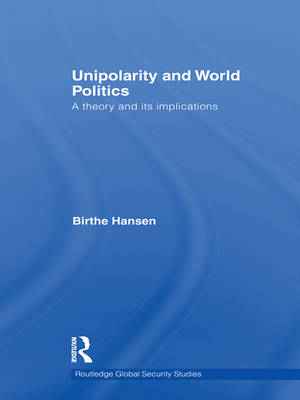Contemporary Security Studies
2 total works
Security Strategies and American World Order
by Birthe Hansen and Peter Toft
This book analyses security strategies in the American world order, systematically comparing Russian, Middle Eastern and European policies.
The main finding is that the loss of relative power has decisive importance for the security strategies of states, but that particular strategies can only be explained when relative power is combined with ideology and the probability of military conflict. Research on the unipolar world order has focused largely on the general dynamics of the system and the actions of the American unipole. By contrast, this book focuses on states that lost out relatively as a consequence of unipolarity, and seeks to explain how this loss has affected their security strategies. Thus, in essence, the book tells ‘the other side of the story’ about the contemporary world order. In addition, it makes an important theoretical contribution by systematically coupling relative ideology and relative security with relative power and exploring their explanatory value.
This book will be of great interest to students of international relations, security studies and foreign policy.
This new book offers a coherent model of a unipolar world order.
Unipolarity is usually described either as a 'brief moment' or as something historically insignificant. However, we have already seen nearly twenty years of virtual unipolarity and this period has been of great significance for world politics.
Two issues have been crucial since the end of the Cold War: How to theorize the distinctiveness and exceptional character of a unipolar international system? And what is it like to conduct state business in a unipolar world? Until now, a comprehensive model for unipolarity has been lacking. This volume provides a theoretical framework for analysis of the current world order and identifies the patterns of outcomes and systematic variations to be expected. Terrorism and attempts by small states to achieve a nuclear capability are not new phenomena or exclusive to the current world order, but in the case of unipolarity these have become attached to the fear of marginalization and the struggle against a powerful centre without the possibility of allying with an alternative superpower.
Supplying a coherent theoretical model for unipolarity, which can provide explanations of trends and patterns in the turbulent post-Cold War era, this book will be of interest to students of IR theory, international security and foreign policy.

